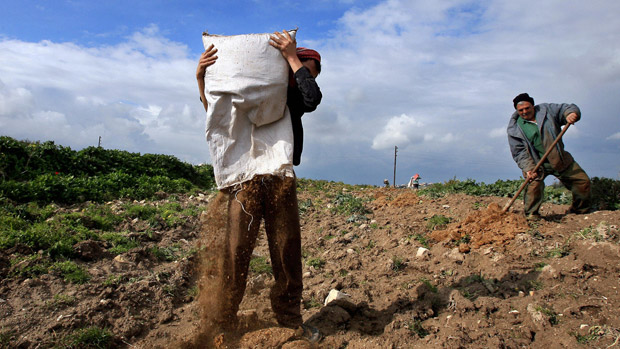Global food security 'threatened by Middle East conflict'
Wild ancestors of food crops growing in the region's 'fertile crescent' could hold key to feeding the world

A free daily email with the biggest news stories of the day – and the best features from TheWeek.com
You are now subscribed
Your newsletter sign-up was successful
Civil war Iraq in and Syria, disorder in Lebanon and the ongoing Israeli-Palestinian conflict could lead to starvation for many millions of people and may even threaten global food security, scientists say.
The "fertile crescent" of rivers and nutrient-rich soil, which encompasses all these countries, "has the highest concentration of wild crop plants needed to produce food varieties", The Independent reports.
These species are needed to improve the genetic formation and development of domesticated crops, according to scientists, but a large proportion of them have been put at risk of extinction due to political unrest.
The Week
Escape your echo chamber. Get the facts behind the news, plus analysis from multiple perspectives.

Sign up for The Week's Free Newsletters
From our morning news briefing to a weekly Good News Newsletter, get the best of The Week delivered directly to your inbox.
From our morning news briefing to a weekly Good News Newsletter, get the best of The Week delivered directly to your inbox.
"The Middle East is where the basis of our future food security is located," Dr Nigel Maxted of the University of Birmingham's school of Bioscience said. "Wheat is not a native UK species. It was brought from the fertile crescent centuries ago."
The sites with the richest concentration of "crop wild relatives" or CWRs – the wild species from which our food crops are descended – lie within the borders of Syria, Lebanon, Jordan and Israel.
The Australian news website SBS reports that these wild species are at risk throughout the world.
"Globally, 12 per cent of CWRs are threatened with extinction and all are likely to be suffering a loss of genetic diversity due to habitat loss, conflict, intensive agriculture, urban development, and environmental mismanagement”, it says.
A free daily email with the biggest news stories of the day – and the best features from TheWeek.com
Maxted argues that the survival of these species will determine whether the world is able to keep its growing population from starvation.
"If we're trying to feed that ever-increasing human population, we can categorically say that several million people would die as a result of these species not being present," he says.